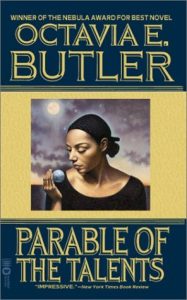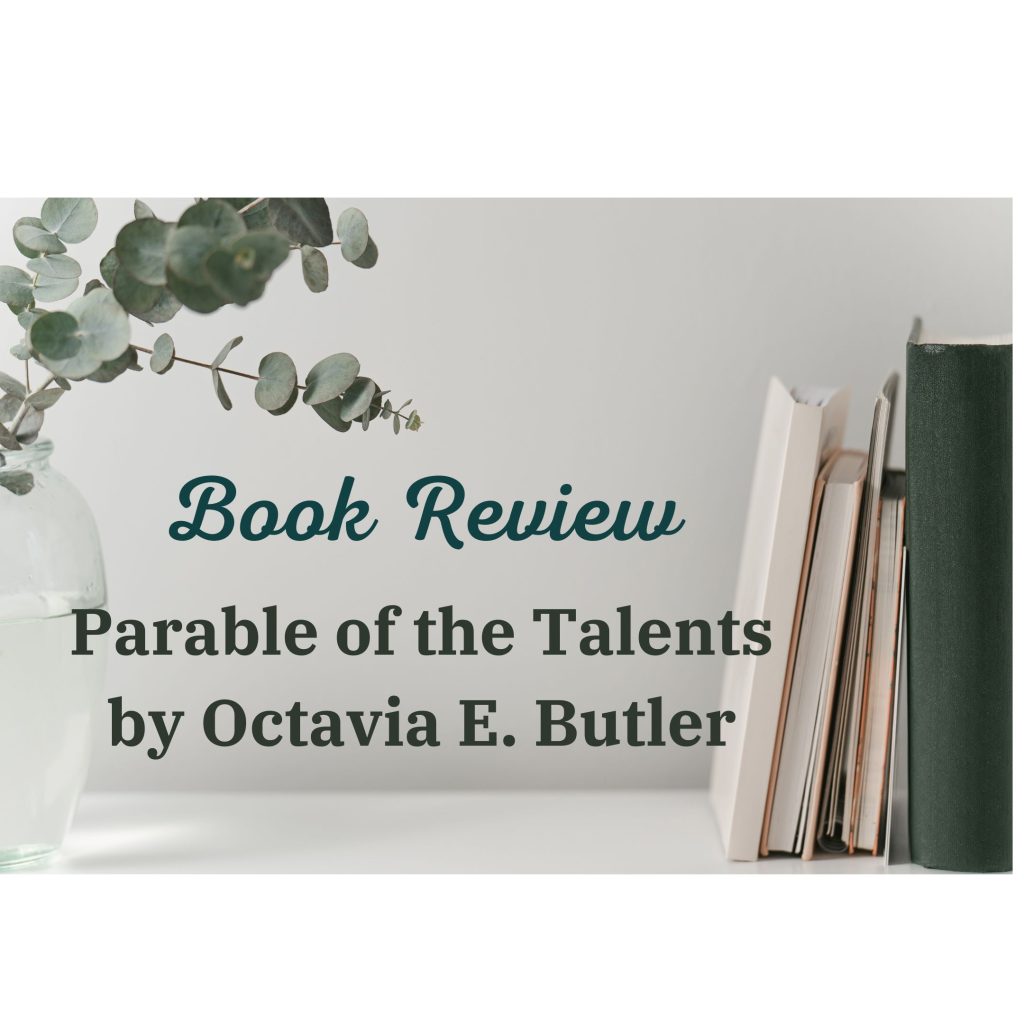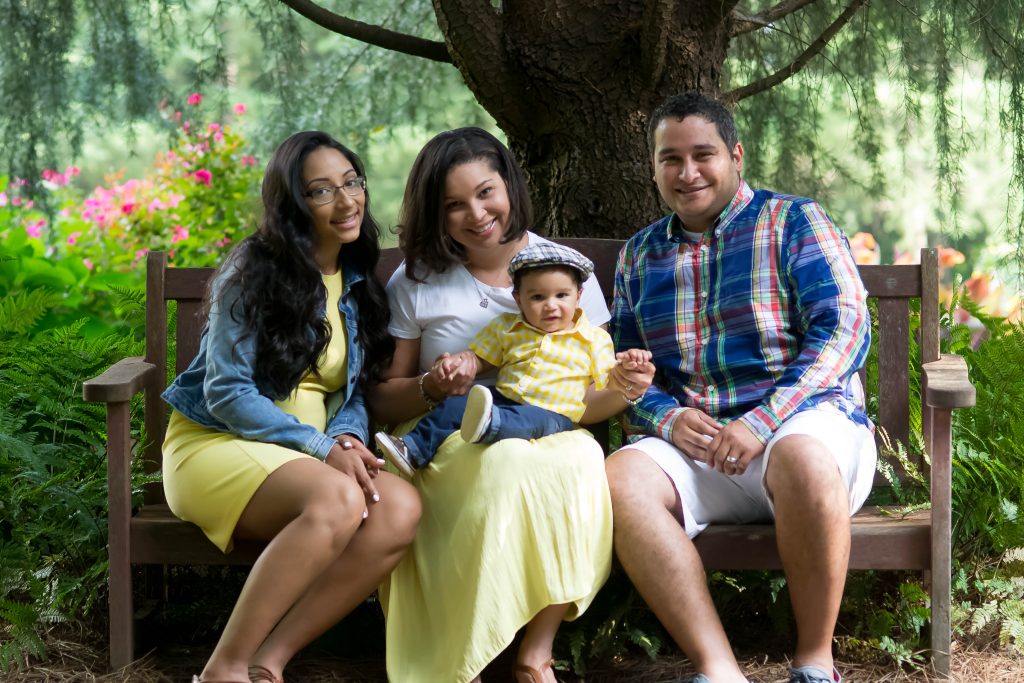Parable of the Talents by Octavia Butler – A Powerful Sequel that Deepens the Dystopian Vision
 Parable of the Talents, the sequel to Octavia Butler’s Parable of the Sower, takes the dystopian world she created and plunges even deeper into its chilling realities. First published in 1998, this novel continues to resonate in 2024, offering a stark reflection of the challenges we face today. Butler’s prophetic storytelling once again proves to be both a warning and a mirror to our own societal fractures.
The story picks up where Parable of the Sower left off, following the now-grown Lauren Olamina as she struggles to build a new community based on the belief system she calls Earthseed. The United States remains in turmoil, torn apart by economic collapse, environmental disasters, and a brutal political regime. In this sequel, Butler delves into the complexities of leadership, faith, and survival in a world where hope is scarce and trust is even scarcer.
Lauren’s vision for Earthseed is ambitious—she dreams of creating a community that not only survives but thrives, with the ultimate goal of reaching the stars. But her dream is threatened by a charismatic and dangerous political leader who seeks to unite the fractured nation under a twisted version of Christian fundamentalism. This leader, whose followers are known as the Christian America movement, poses a dire threat to Lauren and her fledgling community.
Parable of the Talents doesn’t shy away from the brutal realities of Lauren’s world. Butler’s writing is as sharp and vivid as ever, painting a picture of a society that has lost its way but still clings to the hope of redemption. The characters are richly developed, and the relationships are complex, reflecting the difficult choices that must be made in a world where morality is often a luxury.
One of the most compelling aspects of this sequel is the exploration of faith and the role it plays in both uniting and dividing people. Lauren’s Earthseed is a religion born out of necessity, a belief system that emphasizes adaptability and change. In contrast, the Christian America movement represents a dangerous rigidity, a refusal to evolve in the face of overwhelming change. The tension between these two ideologies drives much of the novel’s conflict and makes for a thought-provoking read.
As with Parable of the Sower, I found myself completely absorbed in Lauren’s journey. While her vision is not without flaws, her determination and resilience are nothing short of inspiring. Butler’s ability to create characters that are both deeply human and larger-than-life is on full display in this novel.
However, the joy of reading Parable of the Talents is tinged with sadness, knowing that this story is incomplete. Octavia Butler passed away in 2006, leaving the Earthseed trilogy unfinished. The loss of the third and final book is a profound one for the literary world. We can only imagine where Butler might have taken Lauren’s story, but what she left behind in Parable of the Talents is a powerful and enduring work that continues to resonate today.
Ready to continue the journey with Lauren Olamina? Purchase Parable of the Talents here.
Disclaimer: I purchased and read this book on my own. This review contains an affiliate link, meaning I may earn a small commission if you make a purchase through the link, at no additional cost to you. This helps support my blog and allows me to continue sharing insightful reviews with you!
Parable of the Talents, the sequel to Octavia Butler’s Parable of the Sower, takes the dystopian world she created and plunges even deeper into its chilling realities. First published in 1998, this novel continues to resonate in 2024, offering a stark reflection of the challenges we face today. Butler’s prophetic storytelling once again proves to be both a warning and a mirror to our own societal fractures.
The story picks up where Parable of the Sower left off, following the now-grown Lauren Olamina as she struggles to build a new community based on the belief system she calls Earthseed. The United States remains in turmoil, torn apart by economic collapse, environmental disasters, and a brutal political regime. In this sequel, Butler delves into the complexities of leadership, faith, and survival in a world where hope is scarce and trust is even scarcer.
Lauren’s vision for Earthseed is ambitious—she dreams of creating a community that not only survives but thrives, with the ultimate goal of reaching the stars. But her dream is threatened by a charismatic and dangerous political leader who seeks to unite the fractured nation under a twisted version of Christian fundamentalism. This leader, whose followers are known as the Christian America movement, poses a dire threat to Lauren and her fledgling community.
Parable of the Talents doesn’t shy away from the brutal realities of Lauren’s world. Butler’s writing is as sharp and vivid as ever, painting a picture of a society that has lost its way but still clings to the hope of redemption. The characters are richly developed, and the relationships are complex, reflecting the difficult choices that must be made in a world where morality is often a luxury.
One of the most compelling aspects of this sequel is the exploration of faith and the role it plays in both uniting and dividing people. Lauren’s Earthseed is a religion born out of necessity, a belief system that emphasizes adaptability and change. In contrast, the Christian America movement represents a dangerous rigidity, a refusal to evolve in the face of overwhelming change. The tension between these two ideologies drives much of the novel’s conflict and makes for a thought-provoking read.
As with Parable of the Sower, I found myself completely absorbed in Lauren’s journey. While her vision is not without flaws, her determination and resilience are nothing short of inspiring. Butler’s ability to create characters that are both deeply human and larger-than-life is on full display in this novel.
However, the joy of reading Parable of the Talents is tinged with sadness, knowing that this story is incomplete. Octavia Butler passed away in 2006, leaving the Earthseed trilogy unfinished. The loss of the third and final book is a profound one for the literary world. We can only imagine where Butler might have taken Lauren’s story, but what she left behind in Parable of the Talents is a powerful and enduring work that continues to resonate today.
Ready to continue the journey with Lauren Olamina? Purchase Parable of the Talents here.
Disclaimer: I purchased and read this book on my own. This review contains an affiliate link, meaning I may earn a small commission if you make a purchase through the link, at no additional cost to you. This helps support my blog and allows me to continue sharing insightful reviews with you!
 Parable of the Talents, the sequel to Octavia Butler’s Parable of the Sower, takes the dystopian world she created and plunges even deeper into its chilling realities. First published in 1998, this novel continues to resonate in 2024, offering a stark reflection of the challenges we face today. Butler’s prophetic storytelling once again proves to be both a warning and a mirror to our own societal fractures.
The story picks up where Parable of the Sower left off, following the now-grown Lauren Olamina as she struggles to build a new community based on the belief system she calls Earthseed. The United States remains in turmoil, torn apart by economic collapse, environmental disasters, and a brutal political regime. In this sequel, Butler delves into the complexities of leadership, faith, and survival in a world where hope is scarce and trust is even scarcer.
Lauren’s vision for Earthseed is ambitious—she dreams of creating a community that not only survives but thrives, with the ultimate goal of reaching the stars. But her dream is threatened by a charismatic and dangerous political leader who seeks to unite the fractured nation under a twisted version of Christian fundamentalism. This leader, whose followers are known as the Christian America movement, poses a dire threat to Lauren and her fledgling community.
Parable of the Talents doesn’t shy away from the brutal realities of Lauren’s world. Butler’s writing is as sharp and vivid as ever, painting a picture of a society that has lost its way but still clings to the hope of redemption. The characters are richly developed, and the relationships are complex, reflecting the difficult choices that must be made in a world where morality is often a luxury.
One of the most compelling aspects of this sequel is the exploration of faith and the role it plays in both uniting and dividing people. Lauren’s Earthseed is a religion born out of necessity, a belief system that emphasizes adaptability and change. In contrast, the Christian America movement represents a dangerous rigidity, a refusal to evolve in the face of overwhelming change. The tension between these two ideologies drives much of the novel’s conflict and makes for a thought-provoking read.
As with Parable of the Sower, I found myself completely absorbed in Lauren’s journey. While her vision is not without flaws, her determination and resilience are nothing short of inspiring. Butler’s ability to create characters that are both deeply human and larger-than-life is on full display in this novel.
However, the joy of reading Parable of the Talents is tinged with sadness, knowing that this story is incomplete. Octavia Butler passed away in 2006, leaving the Earthseed trilogy unfinished. The loss of the third and final book is a profound one for the literary world. We can only imagine where Butler might have taken Lauren’s story, but what she left behind in Parable of the Talents is a powerful and enduring work that continues to resonate today.
Ready to continue the journey with Lauren Olamina? Purchase Parable of the Talents here.
Disclaimer: I purchased and read this book on my own. This review contains an affiliate link, meaning I may earn a small commission if you make a purchase through the link, at no additional cost to you. This helps support my blog and allows me to continue sharing insightful reviews with you!
Parable of the Talents, the sequel to Octavia Butler’s Parable of the Sower, takes the dystopian world she created and plunges even deeper into its chilling realities. First published in 1998, this novel continues to resonate in 2024, offering a stark reflection of the challenges we face today. Butler’s prophetic storytelling once again proves to be both a warning and a mirror to our own societal fractures.
The story picks up where Parable of the Sower left off, following the now-grown Lauren Olamina as she struggles to build a new community based on the belief system she calls Earthseed. The United States remains in turmoil, torn apart by economic collapse, environmental disasters, and a brutal political regime. In this sequel, Butler delves into the complexities of leadership, faith, and survival in a world where hope is scarce and trust is even scarcer.
Lauren’s vision for Earthseed is ambitious—she dreams of creating a community that not only survives but thrives, with the ultimate goal of reaching the stars. But her dream is threatened by a charismatic and dangerous political leader who seeks to unite the fractured nation under a twisted version of Christian fundamentalism. This leader, whose followers are known as the Christian America movement, poses a dire threat to Lauren and her fledgling community.
Parable of the Talents doesn’t shy away from the brutal realities of Lauren’s world. Butler’s writing is as sharp and vivid as ever, painting a picture of a society that has lost its way but still clings to the hope of redemption. The characters are richly developed, and the relationships are complex, reflecting the difficult choices that must be made in a world where morality is often a luxury.
One of the most compelling aspects of this sequel is the exploration of faith and the role it plays in both uniting and dividing people. Lauren’s Earthseed is a religion born out of necessity, a belief system that emphasizes adaptability and change. In contrast, the Christian America movement represents a dangerous rigidity, a refusal to evolve in the face of overwhelming change. The tension between these two ideologies drives much of the novel’s conflict and makes for a thought-provoking read.
As with Parable of the Sower, I found myself completely absorbed in Lauren’s journey. While her vision is not without flaws, her determination and resilience are nothing short of inspiring. Butler’s ability to create characters that are both deeply human and larger-than-life is on full display in this novel.
However, the joy of reading Parable of the Talents is tinged with sadness, knowing that this story is incomplete. Octavia Butler passed away in 2006, leaving the Earthseed trilogy unfinished. The loss of the third and final book is a profound one for the literary world. We can only imagine where Butler might have taken Lauren’s story, but what she left behind in Parable of the Talents is a powerful and enduring work that continues to resonate today.
Ready to continue the journey with Lauren Olamina? Purchase Parable of the Talents here.
Disclaimer: I purchased and read this book on my own. This review contains an affiliate link, meaning I may earn a small commission if you make a purchase through the link, at no additional cost to you. This helps support my blog and allows me to continue sharing insightful reviews with you! 
